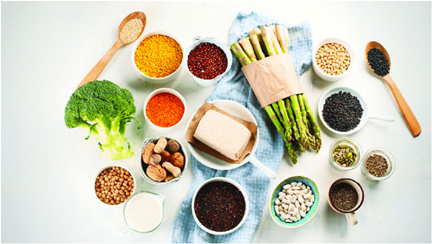
Osteoporosis can make your bones weak and fragile so much so that even a mild fall is enough to fracture a bone or two. Osteoporosis-related fractures most commonly occur in the hip, wrist or spine. Maintaining a healthy weight, saying no to alcohol and tobacco, eating a balanced diet and staying active can prevent one from this disease. A diet rich in calcium, magnesium, Vitamin K and zinc can help maintain bone health. Besides, regular exercise is important for improving bone density. According to recent statistics from the International Osteoporosis Foundation, worldwide, 1 in 3 women over the age of 50 years and 1 in 5 men will experience osteoporotic fractures in their lifetime. Symptoms of osteoporosis may not appear until a bone fracture occurs. Risk factors include age, being female, family history, low body weight, smoking, and excessive alcohol consumption.
“Osteoporosis continues to be a major and common health issue. Bones are made up of calcium and store 99% of the calcium in the body while the remaining only 1% is stored & utilised in blood, muscles, and tissues. If you are not getting calcium from your daily diet, your body pulls it from your bones to sustain other functions that are very important for immediate survival. Also, some amount of calcium is continually excreted in the urine. So, if your dietary intake does not compensate for what is lost, your bones will lose calcium over time, which will lead you to the risk of developing osteoporosis,” says nutritionist Lovneet Batra in her recent Instagram post.
“Maintaining adequate calcium, which is at least 1,000 mg of calcium intake per day through dietary sources or supplements is widely regarded as a safe and effective strategy for the prevention and treatment of osteoporosis. However, too much calcium can also cause issues such as constipation, gas, and bloating.
Plant-based sources of calcium
Batra says dairy is often thought of as the only source of calcium as 1 cup of milk gives 290 mg of calcium, but there are also plenty of plant-based sources that should be a part of your vegan diet as all of them are packed with several other nutrients needed to maintain healthy bones.
- Your body needs magnesium to maintain bone health and not getting enough magnesium in your diet could increase your risk of developing osteoporosis.
- Vitamin K is necessary for the function of proteins involved in bone formation and maintenance.
- Zinc is needed for proper bone growth and maintenance, and it also promotes bone regeneration. Low levels of zinc have been associated with postmenopausal osteoporosis.
Top vegan sources of calcium
1 cup turnip greens = 200 mg of calcium
1 tbsp, sesame seeds = 146 mg of calcium
1 cup soy bean = 175 mg of calcium
1 cup mustard greens = 120 mg of calcium
1 cup okra = 120 mg of calcium
It is important to take care of your calcium intake along with vitamin D as it is necessary for maintaining strong bones, especially in older adults. It’s important to get enough calcium through diet or supplements, especially during childhood and adolescence when bones are still developing. Source: HT





Be the first to comment